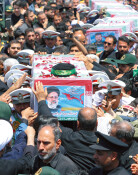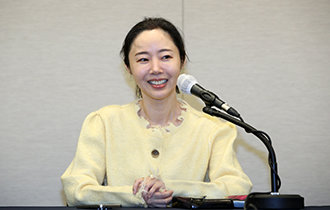Ministries Debate U.S. Beef Imports
Ministries Debate U.S. Beef Imports
Posted December. 23, 2006 06:38,
As dioxin has been detected lately from U.S. imported beef, a case followed by the detection of bone fragment, trade fiction might result between Korea and the U.S. surrounding beef importation.
Moreover, this had led to a clash of opinions inside the government, as the Ministry of Finance and Economy insisted that the quarantine regulations were too strict, whereas the Ministry of Agriculture stood against such a statement by saying, We only followed the principles.
A Complete Ban on Imports is not Likely-
According to the sanitary conditions based on the agreement between Korea and U.S., on occasions where some beef products are diagnosed to exceed the approved level during dioxin testing, the corresponding products should be either discarded or sent back to the U.S., and all import permission on the slaughterhouses within the U.S. should be repealed. Such a rule applies to the finding of bone fragments as well.
Hence, even if dioxin is detected, it will unlikely affect Koreas stance not to impose a complete ban on U.S. beef imports. However, dioxin poses a more serious problem when considering that dioxin accumulates inside the cattles body, while a bone fragment is more likely to have gotten into the meet accidentally during meat processing.
Lee Sang-gil, chief of the livestock division at the Agricultural Ministry, said, Additional sanctions might be necessary if detection of dioxin turns out to be caused by specific feeding ingredients and also if such cattle have been distributed to other slaughterhouses.
As dioxin testing gave rise to some troubles, the U.S. responded by sending a fax to the Korean Agricultural Ministry on December 22 requesting documentary evidence, including the testing methodology.
Does a Calm Approach Take Precedence over Sanitary Conditions?-
Kim Sung-jin, finance deputy and economy minister on international affairs, said, We need a reasonable and calm approach toward the issue of beef imports. It is not correct to use concerns of peoples safety as an excuse to suspend imports and act against common sense in the international society.
This remark supposedly demonstrates the opinion of some government officials regarding the recent U.S. beef scandal. Indeed, the Financial Ministry and the Foreign Ministry reportedly stated, The testing procedures on U.S. imported beef are too strict in accordance to traditional practices, particularly if we take into account that FTA negotiations between Korea and U.S. is currently in full swing.
In reference to the bone fragment issue, a high official of the FTA negotiation team said, In order to materialize a negotiation, the standards should not ban imports but rather ease the standards by restricting imports above certain levels.
Still, the Agricultural Ministry sticks to its high principles. We only abided by the sanitary conditions that Korea and the U.S. agreed to in January, stated an official at the ministry.
Chief Lee stressed, Among the 14 nations that import boneless lean meat, none has agreed to set up standards on the size of bone fragments.
smhong@donga.com







